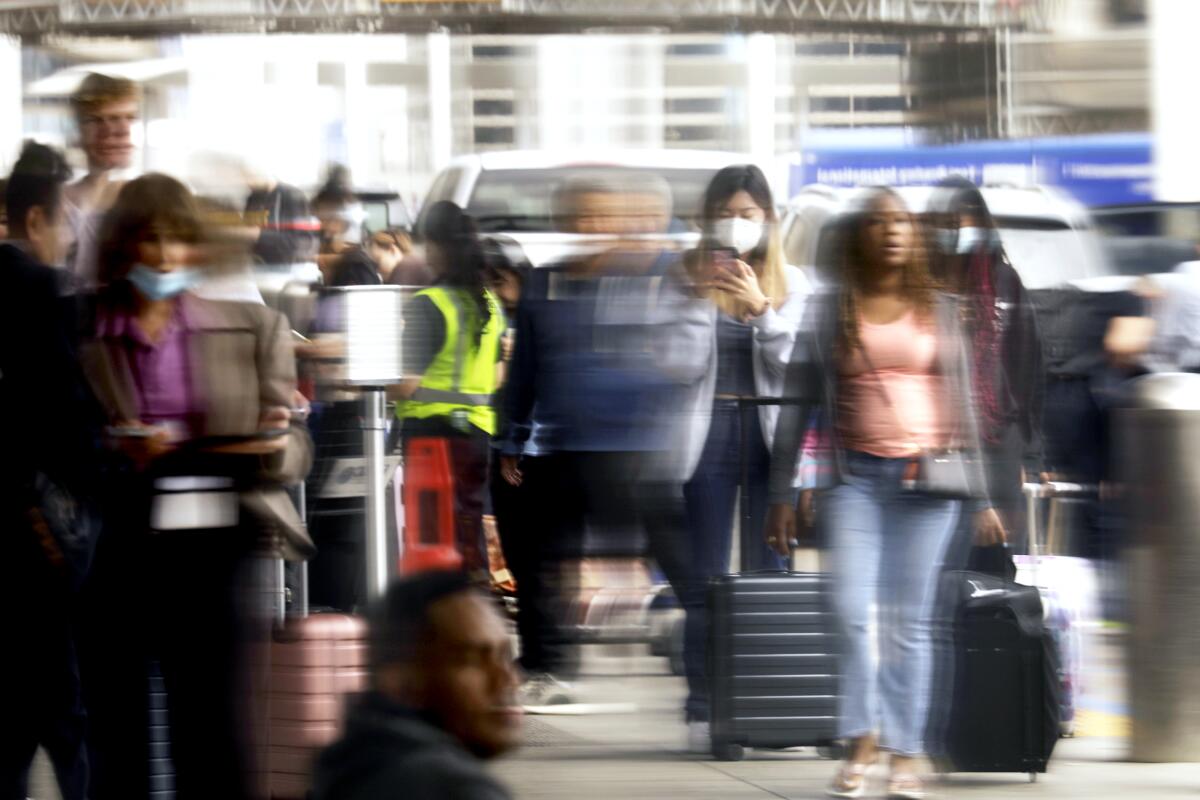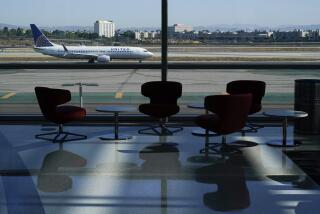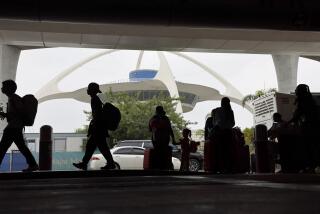LAX passenger traffic in 2022 is highest since pandemic began. Does that mean more jet emissions?

Over 60 million passengers have traveled through Los Angeles International Airport this year, airport officials announced, making it the busiest year since the airport set traffic records in 2019.
This year’s Southwest Airlines meltdown has highlighted America’s reliance on air travel as well as the system’s fragility, especially around the holidays.
“The last three years have been catching up to where we left off before the pandemic,” LAX spokesman Heath Montgomery said, referring to passenger volume.
In 2019, about 88 million people traveled through LAX, making it the third-busiest airport in the world at that time behind Atlanta and Beijing.
“With the recovery in international traffic being more delayed, it’s good to see those numbers rising, especially in the last six months,” he said.
This year, the number of international travelers through LAX more than doubled, from 6.9 million in 2021 to 14.9 million through November of this year. Total flights were also up around 11.5%, from 459,000 to 511,000.
The higher number of flights usually means more emissions for neighborhoods around the airports and for the atmosphere at large.
Commercial air travel is responsible for 2 to 3% of all carbon dioxide emissions, according to the Consumer Energy Alliance.
Global carbon emissions dropped about 7% in 2020, a drop mainly attributed to decreased travel due primarily to pandemic restrictions. This year, global emissions rose about 1%, with U.S. emissions rising by 1.5%.
Locally, increased emissions from LAX could be harmful to the communities near the airport. A 2014 study found potentially harmful particles from planes in communities up to 10 miles away from LAX.
But the recent increase in number of flights and passengers may not necessarily mean more emissions, said Montgomery. Improved efficiency in jet engines and the adoption of cleaner-burning biofuels make it “a very complicated story,” he said.
More to Read
Sign up for Essential California
The most important California stories and recommendations in your inbox every morning.
You may occasionally receive promotional content from the Los Angeles Times.










